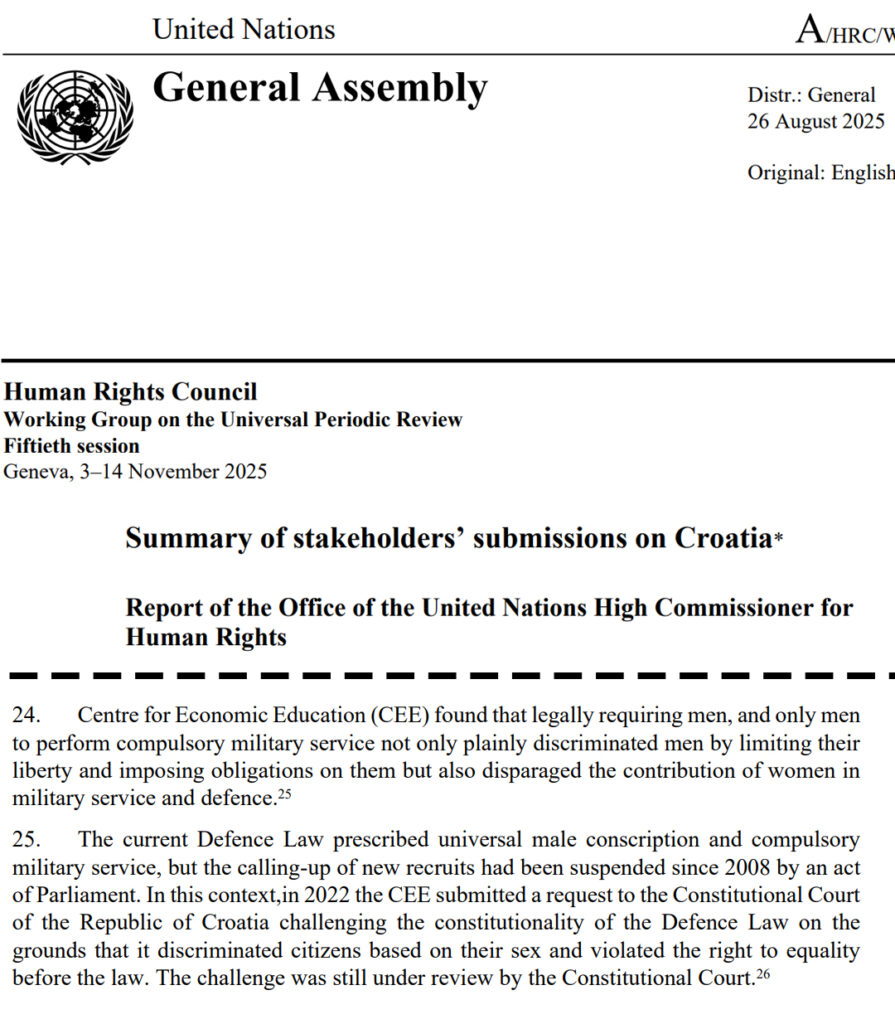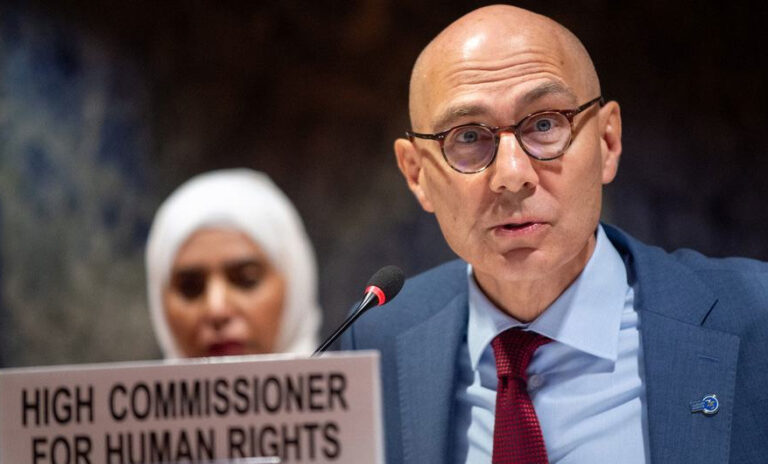The Office of the United Nations High Commissioner for Human Rights has included the issue of compulsory military service in Croatia in a report prepared for the country’s Fourth Universal Periodic Review (UPR), scheduled for this November.

The UPR is a unique UN mechanism that examines the human rights situation in every member state every five years. A working group of 47 countries bases its recommendations on three key documents: the National Report submitted by the member state, the Compilation of UN Information, and the Summary of Stakeholder Submissions, which includes relevant contributions from the Ombudsperson and civil society organizations.
The report highlights a warning from the Center for Economic Education (CEE) that the Defense Act discriminates against men by legally obligating them to perform military service solely on the basis of sex. This, the CEE notes, restricts men’s personal liberty and imposes sex-based obligations, while simultaneously disparaging the value of women’s contribution to the armed forces.
Although the calling-up of recruits was suspended in 2008 by a decision of the Croatian Parliament, the controversial provision mandating military service remains part of the law. The Government has proposed amendments that would repeal the suspension, effectively reinstating conscription and requiring citizens – based on their sex – to serve in the armed forces under threat of legal penalties.
In 2022, the Center for Economic Education filed a constitutional challenge against the Defense Act, arguing that it violates the constitutional right to equality before the law. The case remains pending before the Constitutional Court.
By including this issue in its report, the United Nations has placed the problem of gender discrimination in compulsory military service in an international context, bringing renewed attention to equality and human rights within Croatia’s defense system.
The Center for Economic Education emphasizes that the objectives of national defense can be achieved more effectively through voluntary service, at a lower cost to society, the economy, and individual liberty.
Before you go…
We are entirely funded by donations from private individuals. Your support allows us to do even more. Thank you!
